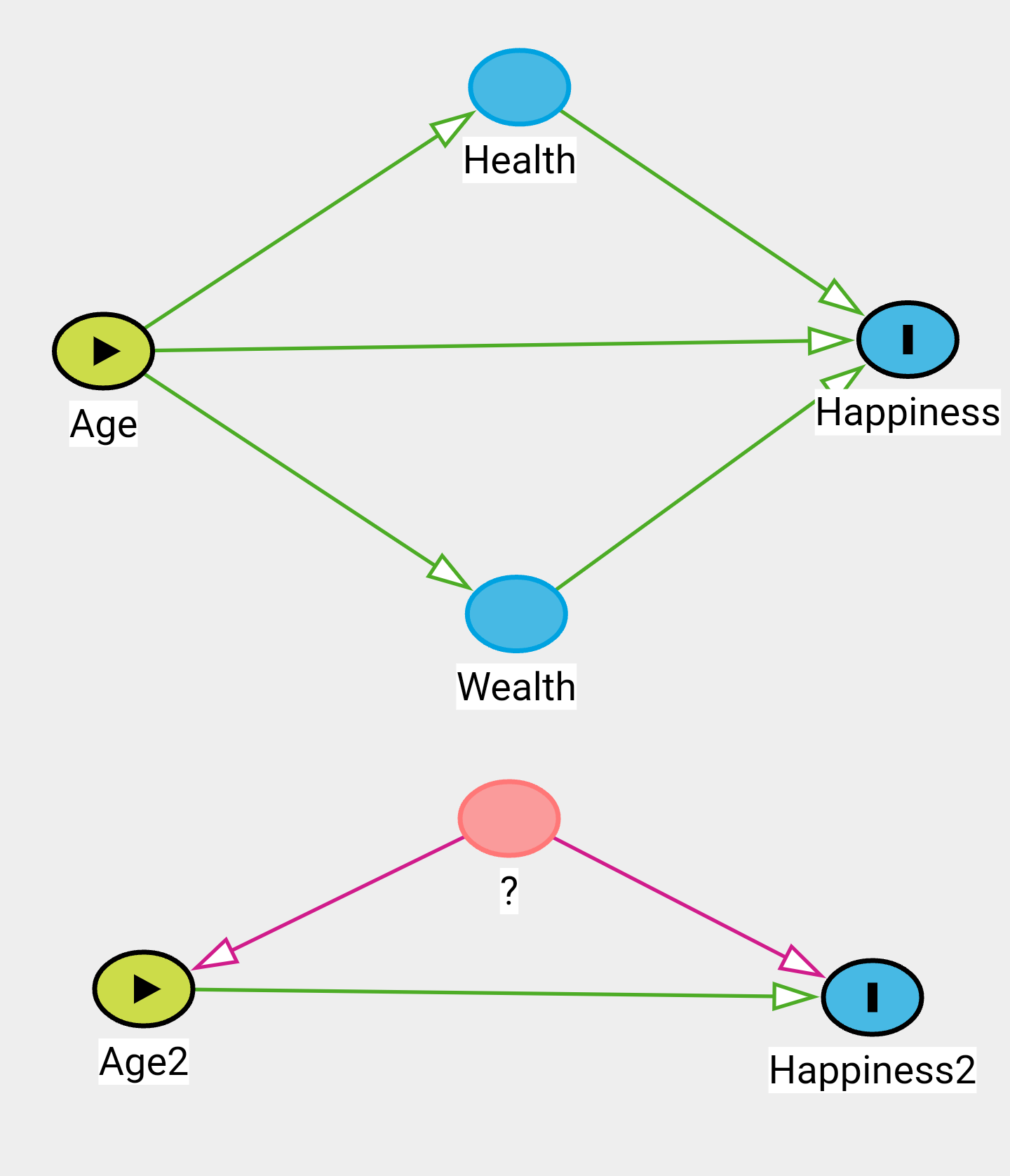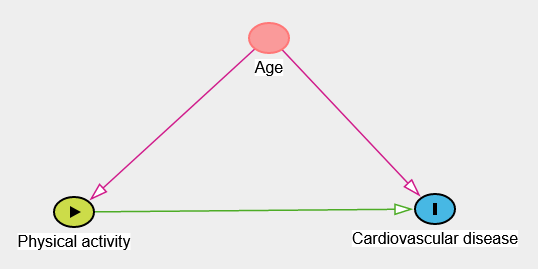This is a follow-up to my previous question: "Basic understanding of control variables in observational studies"
I have understood the answer, but am still trying to figure out what I think of the Wikipedia example that I'd cited.
Basically, the example is the effect of age on happiness, and discusses whether you should ever control for health. The example says no, because:
To identify the control variables needed here, one could ask what other variables determine not only someone's life satisfaction but also their age. Many other variables determine life satisfaction. But no other variable determines how old someone is (as long as they remain alive). (All people keep getting older, at the same rate, no matter what their other characteristics.) So, no control variables are needed here.
What I understand by this explanation is that age can never (or close to never) be confounded if it is the independent variable in the study.
I have three questions about this explanation:
Is it not mixing up the individual with the population? E.g., let's say wealth completely determines happiness and has a strong effect on longevity. You have a population of 100 people, 60 are age sixty and 40 age seventy. Happiness is measured as 1 = happy and 0 = not. At sixty, half the people are wealthy. At seventy, 3/4s are. Average happiness at sixty = 0.5 (30x1/60) and at seventy = 0.75. Happiness correlates positively with age, but controlling for wealth eliminates this. In this case, shouldn't one control for wealth?
Is their a clear theoretical reason to, or not to, control for health in the Wiki example? To my understanding, if Age = X, Happiness = Y, and Health = Z, you have a number of valid relationships: X → Y, X → Z → Y, Z → X, and U → Z. This seems to give contradictory reasons to, or not to, control.
Does it depend on what question you want to ask? In my original question, FP0 said:
Maybe they consider that since age changes by itself without external influence, then they want to consider that the additional effects of the variables I imagined above should be "included" in the global effect of age, since age has a causal impact on them. In my opinion it depends on whether you want to aggregate the different effects of age since age is causal on those factors, or if you want to identify them individually, and estimate the remaining effects of age separately.
If the answers to 1 and 3 are 'yes,' I have issues with the Wiki example.



[fixed title]. $\endgroup$